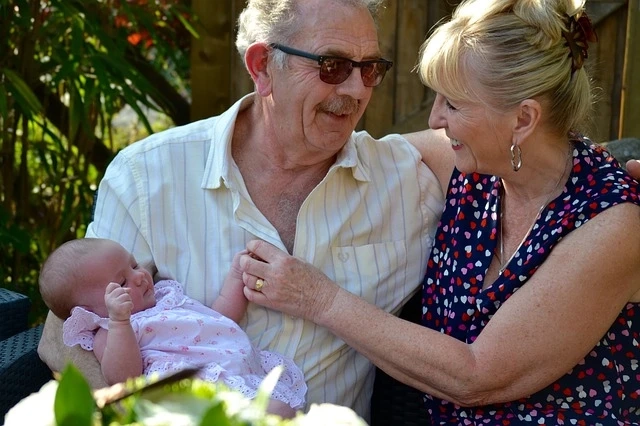Common wisdom may suggest that due to their age, grandmothers are not appropriate caretakers for babies and little kids.
Of course, they may have years and years of parenting experience from raising their own kids, however people over 50 simply cannot run as quickly or react as fast as young parents. And they presumably get tired more quickly and must desire to take a load off even more frequently than the most exhausted parent.
Research at the Johns Hopkins Bloomberg School of Public Health have, in contrast to what people may think, turned that assumption upside-down.
It turns out that kids taken care of by a grandmother have half the risk of injury than children taken care of by a daycare center, other relatives, or even the kid\'s own mother.
In other words, if grandma looks after the children, they are much less likely to end up in the paediatrician’s office with a fracture or a case of bleeding. And this decrease in risk is not only with regards to Band-Aids and plaster casts; injury is the leading cause of childhood deaths in the U.S.
The discovery was detailed in the November 2008 issue of the journal Pediatrics.
It\'s an indication of Western culture that we presume older relatives would not be competent enough and unsafe with our children. It\'s an old saw that we live in a youth-oriented culture where age seems to receive no respect. However, in that presumption, we overlook the reason why grandparents in fact make the best caretakers of kids. They normally share genes in common with those children, and thus have solid evolutionary reasons for taking excellent care of the next generation.
As a matter of fact, anthropologist Kristen Hawkes of the University of Utah has suggested that being a grandma is exactly what evolution ordered.
Human beings are the only species in which women biologically end reproduction long before they pass away, while males can theoretically be fathers right before they step into their graves. What’s the reason for all those years of menopause?
Making use of data from the Hadza, hunter and gatherers of Northern Tanzania, Hawkes has suggested that moms who have menopausal mothers to gather for them can increase their rate of reproduction.
Discovering and processing the Hadza staple, tubers, is a tedious task. And then ladies need to beat the tubers into something edible. Even though mothers can normally support themselves and one kid on their own, when that child is weaned and the mom becomes pregnant once more, she\'s in a nutritional bind. With a newborn she just has to stop walking so far and working so hard. And thus females who have gathering help from their own mothers could save their energy and keep on reproducing.
For the Hadza, it\'s not about daycare, but daily care in the shape of more to eat, which construes into passing on more genes.
In alternative cultures, of course, grandmas help out with direct care; they look after the children as the mothers work in the fields or while Mom is working in a factory or an office. It\'s only in the U.S. that we do not acknowledge the role of grandparents in childcare. However, 8% of American kids live with a grandparent, more than 900,000 grandparents offer daycare, and 30% of kids under the age of 5 with working mothers are regularly taken care of by their grandparents.
It is quite clear that in the U.S., no matter what we may think to be true, grandparents are quietly and safely providing the help and aid that busy parents require. And by doing so, they, similar to the Hadza grandmothers, are aiding their genes make it into future generations.
Does your grandma mean a lot to you? Show her your appreciation for her by getting her a grandma coffee mug.
Read more about grandparents as babysitters



